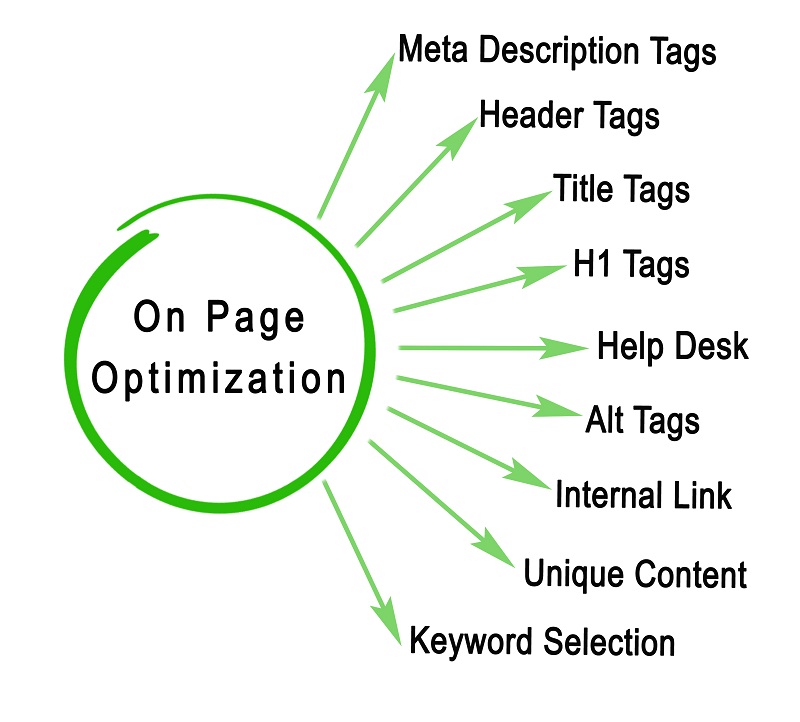website content
Hamtramck Ribbon Cutting

OMA Comp joined the Mayor of Hamtramck, Karen Majewski, in support of our client Priority Waste to celebrate the occasion of bringing sustainable recycling to the residents of the City of Hamtramck. It was an honor to attend this important event for our customer.
How Your Online Reputation Affects Your Search Position

Your online reputation carries more weight now than it ever has before – and not just with consumers. Search engines may also change your results page ranking based on factors surrounding your reputation. What do you need to know about your online reputation and how it influences your search ranking?
Local Reviews Can Help or Hurt Your Local Search Rank
Local reviews help people find businesses in their area. Many users search for a company online before buying from it. These reviews can influence consumer behavior. They can also help or hurt your search rank. If you earn a high number of negative reviews, some platforms will push you down the results page.
Quality Content Builds Authority Which Helps Search Rank
Quality content is at the heart of SEO. It makes your pages look interesting, builds trust with consumers, and can establish you as an authority. That’s good for your reputation and will give your search results page rank a boost. Google wants to see sites that look trustworthy and are rich in the information users want.
Using Fake Reviews and Shady Tactics Will Hurt You
Search engines are smarter than they were 10 to 20 years ago. Platforms like Yelp are better at identifying fake reviews. If you use fake reviews, you may be dropped down or omitted from the search results.
Your online reputation can have a powerful impact on your ability (or inability) to expand your customer base. Establish yourself as a trusted authority and work on positive SEO tactics to get the best results. Contact OMA Comp today to learn more about managing your online reputation and getting more out of search engine optimization.
Meta Descriptions Should Match Page Content

If you’re taking your first steps into search engine optimization (SEO), then you will notice some terms that pop up a lot. One of those is meta description. The meta description is important to help draw in the right type of traffic to your website.
What Are Meta Descriptions?
The meta description is an HTML attribute. It displays a short summary or “teaser” of the content that’s on the page. Google will display the meta description in the search results. This gives internet users a quick overview of what to expect if they decide to click the link.
When viewing Google search results, look below the page title and URL, and you will see approximately one or two sentences of text. That is the meta description.
What Does the Meta Description Do?
This small piece of content plays a big role in your online marketing strategy. The meta description has a significant influence on click-through rates. If it is well-written and relevant, then it will persuade the internet user to click and visit your site. If it is not, then it may cause them to keep scrolling, even if your page is exactly what they need. That influence is why the meta description is so important.
Tips for Writing a Great Meta Description
When writing your meta description, remember to:
- Keep it under the 160-character limit
- Keep it relevant based on the content your page offers
- Use targeted keywords in your meta description
If you have questions about meta descriptions, let us know. We are available to provide SEO services that will help your business grow. Contact us today to learn more.
Does My Website Need an RSS Feed for SEO?

RSS, which stands for Really Simple Syndication or Rich Site Summary, is a type of web feed that provides updates to content. The feed consists of a text file that allows subscribers to see content for a period of time after its updated. Does having an RSS feed on your website boost your SEO?
Google Weighs In On RSS Feeds and SRP Ranking
When it comes to your search results page ranking, RSS feeds won’t help according to John Mueller, webmaster trends analyst at Google. A question appeared on his Twitter feed on April 10th, 2018 asking if RSS feeds help rank better in Google. John’s straightforward response was a simple “No.” The question was geared toward news websites, but the answer applies to all sites.
This isn’t new, but it is something that many website owners did not know in 2018. Mueller participated in a video hangout with blogger Jennifer Slegg back in 2015. He is quoted as stating “if you are looking for a ranking boost by having an RSS feed, that’s not going to happen.” He went on to explain that “there’s no direct ranking boost for the website itself.”
RSS Feeds and Search Engine Indexing
The RSS feed is considered a technical tool, so it is still beneficial to have on your site. It can assist with page crawling and indexing. That means new content could be indexed faster and more accurately with an RSS feed. While it doesn’t provide a direct boost to your search engine results page ranking, it can still help. If you have questions about SEO or RSS feeds, contact OMA Comp to learn more.

